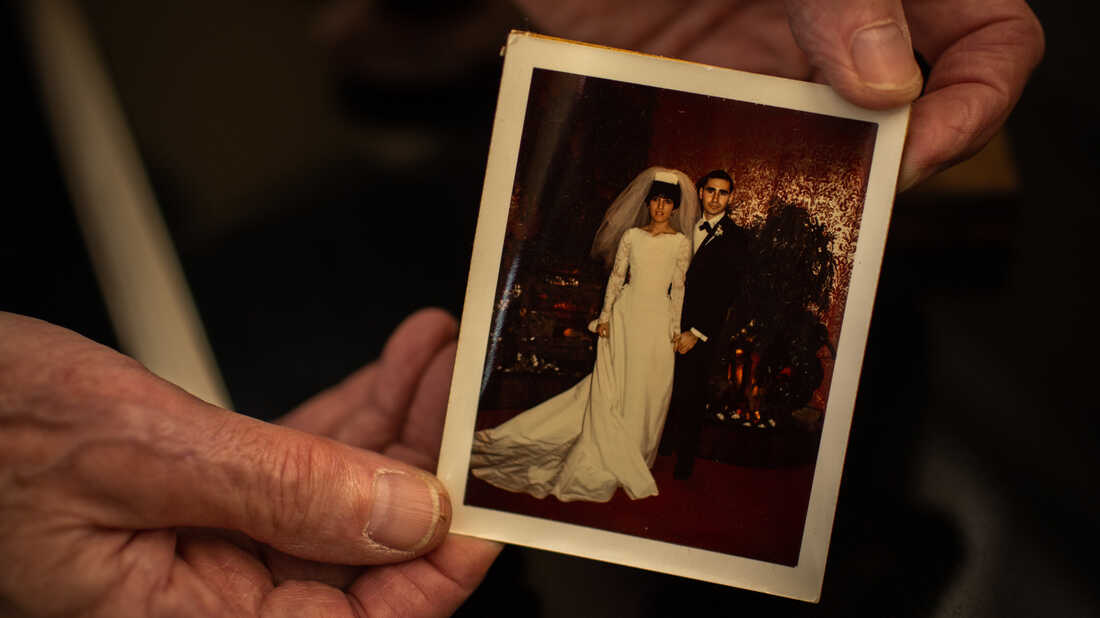
Arnold and Stephanie met in the Bronx in the late 1960s. Arnold had just returned from military service in Vietnam. One month later, they were engaged. Meredith Rizzo/NPR hide caption
Stephanie is one of nearly one million Americans who have died of COVID-19. Her family says Stephanie's death was avoidable, but in recent years, she had been drawn into conspiracy theories.
She believed that the coronavirus was a hoax and refused to get vaccinated. When she got COVID-19 last winter, Stephanie refused treatments and eventually died just a few days after Christmas.
While there is no way to know exactly how many people like Stephanie have died because they believed conspiracy theories, the Kaiser Family Foundation recently found that more than 200,000 Americans would be alive today, had they had been vaccinated.
NPR's Geoff Brumfiel reports.
Email us at
This episode was produced by Jonaki Mehta. It was edited by Ashley Brown, Brett Neely, and Bridget Kelly. Our executive producer is Cara Tallo.

 Live Radio
Live Radio